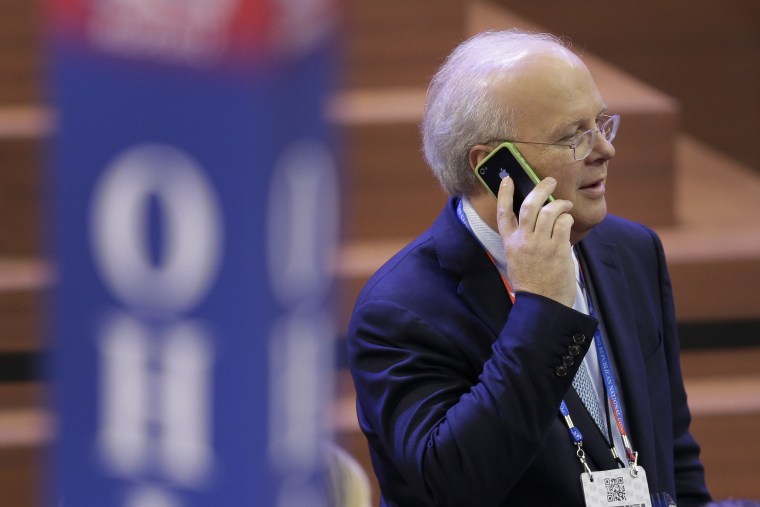Karl Rove has two nicknames and both refer back to his role in getting George W. Bush elected: "Bush's Brain" and "The Architect" are both a nod to Rove's alleged genius when it comes to the analytics behind a cut-throat game of presidential politics.
But a funny thing happened on the way to Mitt Romney's coronation. Rove's endless predictions of victory — especially in critical swing states — proved no more influential on the ultimate result than the more than $325 million dollars he raised via his Crossroads super PACs.
While Mitt Romney was rushing to scratch out his concession speech, Rove was on television insisting Ohio was still hanging in the balance, despite the fact that his own network had called the Buckeye State for President Obama. Rove simply would not, and could not accept the fact that all that money — and even his rants from the soapbox at Fox News — did nothing to help Romney. In fact, after blaming everything from negative TV ads to Hurricane Sandy for his candidate's crushing defeat, Rove was left to answer to all the donors to whom he had promised a Romney victory.
In this election defeat, Rove may be the personification of the dog-eared and hackneyed GOP playbook. The Democrats and the voters have seen the Republican strategy before and this time they were ready to vote in huge numbers to repudiate all that Romney, Ryan and Rove were offering.
Still, Republicans continue to come to Rove's defense. They insist that, without Rove, things would have been far worse for Romney. That's like saying you'd rather lose by a field goal than three touchdowns. The fact is the country has changed and it's been doing so for years while Rove and his ilk have been hibernating in what Bill Maher likes to call the Republican "bubble." Facts and data and common sense can't penetrate the bubble, which leads to what our own Chris Matthews found is nothing short of an alternate universe among the die-hard right.
So what next for The Architect? Like an old coach who has seen the game get faster and more complicated, modern politics appears to have passed on by, leaving Rove in a ditch by the side of the road. And when Rove dares to peer over the edge and look out across the landscape, he's not likely to recognize the country we have become: a more diverse, accepting and progressive population that reflects the blueprint of a House becoming less divided with each passing election cycle. And a close look at those blue prints reveals not a single room with Karl Rove's name on it.
